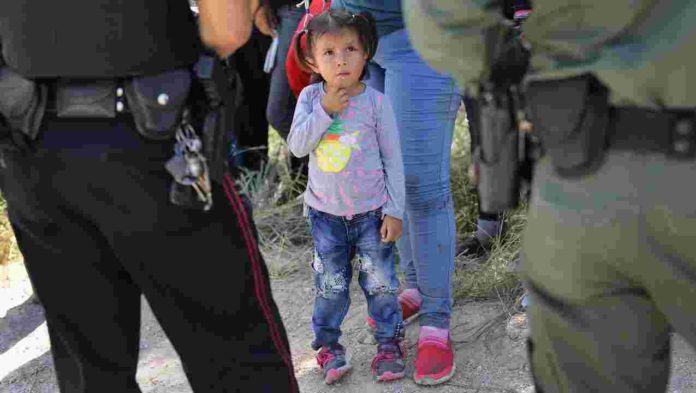
Massachusetts Republican Governor Charlie Baker reversed a decision to send a state National Guard helicopter to the U.S.-Mexico border, citing what he called the administration’s “cruel and inhumane” policy of separating children and parents. (June 19) AP
The sights and sounds of children being ripped from their parents by government officials are not proving politically popular as the Trump administration continues to enforce its “zero-tolerance” policy toward illegal immigration.
Amid the widespread, and often bipartisan, outcry against President Donald Trump’s “tough” policy, several states have pushed back. Nearly a dozen governors have declared their National Guard resources won’t be deployed along the Southwest border and at least one state is taking legal action trying to halt the family separations.
On Tuesday, Democratic attorneys general from 20 states and the District of Columbia demanded the administration end the policy of splitting up families in a letter to U.S. Attorney General Jeff Sessions and Homeland Security Secretary Kirstjen Nielsen
Here is a look at how states have responded so far.
California
State Sen. Kevin de León asked Gov. Jerry Brown to recall California National Guard members who were sent to the border in response to Trump’s policy to separate children from migrant families. Brown, a Democrat, ordered the deployment of up to 400 troops in April, but under the condition that they not be involved in border enforcement.
Colorado
Democratic Gov. John Hickenlooper signed an executive order Monday forbidding the use of state resources “for the purpose of separating children from their parents or legal guardians on the sole ground that their families are in violation of federal immigration laws.”
Hickenlooper said it is “deeply troubling that the U.S. Government would participate in such inhumane actions.”
In April, before the zero tolerance policy was announced, Hickenlooper said he would be willing to send National Guard troops to the border if Trump asked.
Connecticut
Gov. Dannel Malloy said Trump’s zero-tolerance policy is reminiscent of the use of internment camps to hold Japanese-Americans during World War II.
“I will not condone the use of our military reservists to participate in any effort at the border that is connected to this inhumane practice,” Malloy said in a statement. “This vile practice must end.”
Delaware
Gov. John Carney said he received a request to send National Guards troops to the border Tuesday.
“Under normal circumstances, we wouldn’t hesitate to answer the call,” Carney said. “But given what we know about the policies currently in effect…










